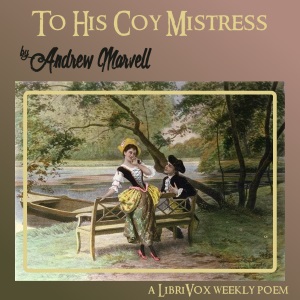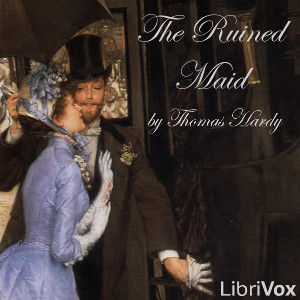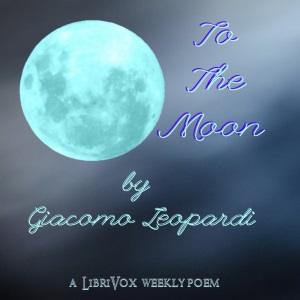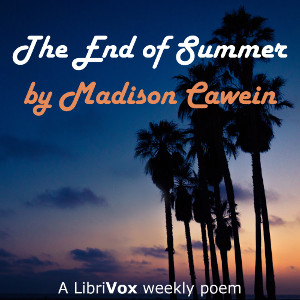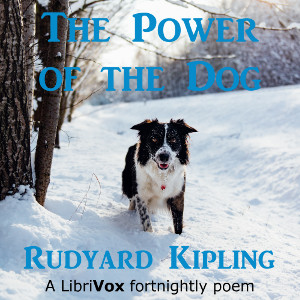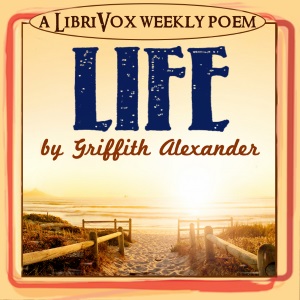Andrew Marvell was an English metaphysical poet, satirist and politician who sat in the House of Commons at various times between 1659 and 1678. During the Commonwealth period he was a colleague and friend of John Milton. His poems range from the love-song "To His Coy Mistress", to evocations of an aristocratic country house and garden in "Upon Appleton House" and "The Garden", the political address "An Horatian Ode upon Cromwell's Return from Ireland", and the later personal and political satires "Flecknoe" and "The Character of Holland". - Summary by Wikipedia
14 episodes
While Hardy wrote poetry throughout his life and regarded himself primarily as a poet, his first collection was not published until 1898. Initially, therefore, he gained fame as the author of such novels as Far from the Madding Crowd (1874), The Mayor of Casterbridge (1886), Tess of the d'Urbervilles (1891), and Jude the Obscure (1895). During his lifetime, Hardy's poetry was acclaimed by younger poets (particularly the Georgians) who viewed him as a mentor. After his death his poems were lauded by Ezra Pound, W. H. Auden and Philip Larkin. (Wikipedia)
12 episodes
My Grandma's father arrived in this country through New York City, and often spoke to my dad, when he was a boy, of what it was like to first see the Statue of Liberty. Most of my relatives arrived through Philadelphia or Boston, and didn't get to see the the "mighty woman with the torch" until later life, on vacation trips to New York City, when she was a must-see for them all. My Grandma always loved this Emma Lazarus poem, so I read this one especially for her, but also for all the other family members who came here "yearning to breathe free". And for those just like my family, who are still "♫♪coming to America, today♫♪". (Summary by Maria Kasper)
17 episodes
John Donne was an English poet and cleric in the Church of England.
He is considered the pre-eminent representative of the metaphysical poets. His works are noted for their strong, sensual style and include sonnets, love poems, religious poems, Latin translations, epigrams, elegies, songs, satires and sermons. His poetry is noted for its vibrancy of language and inventiveness of metaphor, especially compared to that of his contemporaries. Donne's style is characterised by abrupt openings and various paradoxes, ironies and dislocations. These features, along with his frequent dramatic or everyday speech rhythms, his tense syntax and his tough eloquence, were both a reaction against the smoothness of conventional Elizabethan poetry and an adaptation into English of European baroque and mannerist techniques. - Summary by Wikipedia
12 episodes
Whitman claimed that after years of competing for "the usual rewards", he determined to become a poet. He first experimented with a variety of popular literary genres which appealed to the cultural tastes of the period. As early as 1850, he began writing what would become Leaves of Grass, a collection of poetry which he would continue editing and revising until his death. Whitman intended to write a distinctly American epic and used free verse with a cadence based on the Bible. At the end of June 1855, Whitman surprised his brothers with the already-printed first edition of Leaves of Grass. Whitman paid for the publication of the first edition of Leaves of Grass himself. ( Wikipedia )
19 episodes
Emily Jane Brontë was an English novelist and poet who is best known for her only novel, Wuthering Heights, now considered a classic of English literature. Emily was the third eldest of the four surviving Brontë siblings, between the youngest Anne and her brother Branwell. She wrote under the pen name Ellis Bell. ( Wikipedia )
14 episodes
Adams' energy and drive can be seen through his large output of written work in his short lifetime. He often wrote quickly and did little revision, living as he did on the proceeds of his own work rather than with the support of a family or sinecure. Songs of the Army of the Night has been reprinted in many editions, but the reputation of these poems ascends from their engagement with social issues, rather than their value as pure poetry for Adams was deeply sympathetic towards downtrodden races and men. - Summary by Wikipedia
8 episodes
Michael Earls, S.J. was a Jesuit priest, as well as a writer, poet, teacher, and administrator. - Summary by Wikipedia
9 episodes
"Windhover" is another name for the common kestrel (Falco tinnunculus). The name refers to the bird's ability to hover in midair while hunting prey. In the poem, the narrator admires the bird as it hovers in the air, suggesting that it controls the wind as a man may control a horse. The bird then suddenly swoops downwards and "rebuffed the big wind". The bird can be viewed as a metaphor for Christ or of divine epiphany.
Hopkins called "The Windhover" "the best thing [he] ever wrote". It commonly appears in anthologies and has lent itself to many interpretations. - Summary by Wikipedia
11 episodes
John Greenleaf Whittier was an American Quaker poet and advocate of the abolition of slavery in the United States. Frequently listed as one of the Fireside Poets, he was influenced by the Scottish poet Robert Burns. Whittier is remembered particularly for his anti-slavery writings as well as his book Snow-Bound. - Summary by Wikipedia
11 episodes
George MacDonald was a Scottish author, poet, and Christian minister. He was a pioneering figure in the field of fantasy literature and the mentor of fellow writer Lewis Carroll. His writings have been cited as a major literary influence by many notable authors including W. H. Auden, C. S. Lewis, J. R. R. Tolkien, Walter de la Mare, E. Nesbit and Madeleine L'Engle. - Summary by Wikipedia
11 episodes
Edward Powys Mathers was an English translator and poet, and also a pioneer of compiling advanced cryptic crosswords.
He is well known as the translator of J. C. Mardrus's French version of One Thousand Nights and One Night. His English version of Mardrus appeared in 1923, and is known as Mardrus/Mathers. He is known also for the translations The Garden of Bright Waters: One Hundred and Twenty Asiatic Love Poems (1920); and of the Kashmiri poet Bilhana in Bilhana: Black Marigolds (1919), a free interpretation in the tradition of Edward FitzGerald. Some of his translations were set to music by Aaron Copland. - Summary by Wikipedia
10 episodes
Thomas William Hodgson Crosland was a British author, poet, journalist and friend of royalty. - Summary by Wikipedia
6 episodes
Archibald Lampman FRSC was a Canadian poet. "He has been described as 'the Canadian Keats;' and he is perhaps the most outstanding exponent of the Canadian school of nature poets." The Canadian Encyclopedia says that he is "generally considered the finest of Canada's late 19th-century poets in English."
Lampman is classed as one of Canada's Confederation Poets, a group which also includes Charles G.D. Roberts, Bliss Carman, and Duncan Campbell Scott. - Summary by Wikipedia
14 episodes
John Donne was an English poet and cleric in the Church of England.
Despite his great education and poetic talents, Donne lived in poverty for several years, relying heavily on wealthy friends. He spent much of the money he inherited during and after his education on womanising, literature, pastimes, and travel. In 1601, Donne secretly married Anne More, with whom he had twelve children. In 1615, he became an Anglican priest, although he did not want to take Anglican orders. He did so because King James I persistently ordered it. In 1621, he was appointed the Dean of St Paul's Cathedral in London. He also served as a member of Parliament in 1601 and in 1614. (Wikipedia)
8 episodes
George Pope Morris was an American editor, poet, and songwriter.
In addition to his publishing and editorial work, Morris was popular as a poet and songwriter; especially well-known was his poem-turned-song "Woodman, Spare that Tree!"[10] His songs in particular were popular enough that Graham's Magazine in Philadelphia promised Morris $50, sight unseen, for any work he wanted to publish in the periodical. "Woodman, Spare that Tree!" was first published in the January 17, 1837, issue of the Mirror under the title "The Oak" and was that year set to music by Henry Russell before being reprinted under its more common title in 1853. - Summary by Wikipedia
11 episodes
Walter Richard Cassels is the speculated author of the anonymous work Supernatural Religion.
He wrote poetry and was an art collector. Never married, he died in London on 10 June 1907. - Summary by Wikipedia
9 episodes
The following statement expresses Wilcox's unique blending of New Thought, Spiritualism, and a Theosophical belief in reincarnation: "As we think, act, and live here today, we build the structures of our homes in spirit realms after we leave earth, and we build karma for future lives, thousands of years to come, on this earth or other planets. Life will assume new dignity, and labor new interest for us, when we come to the knowledge that death is but a continuation of life and labor, in higher planes." - Summary by Wikipedia
10 episodes
Edgar Allan Poe was an American writer, editor, and literary critic. Poe is best known for his poetry and short stories, particularly his tales of mystery and the macabre. He is widely regarded as a central figure of Romanticism in the United States and American literature as a whole, and he was one of the country's earliest practitioners of the short story. Poe is generally considered the inventor of the detective fiction genre and is further credited with contributing to the emerging genre of science fiction. - Summary by Wikipedia
11 episodes
James Whitcomb Riley was an American writer, poet, and best-selling author. His poems tended to be humorous or sentimental, and of the approximately one thousand poems that Riley authored, the majority are in dialect. His famous works include "Little Orphant Annie" and "The Raggedy Man". - Summary by Wikipedia
11 episodes
Ever wonder how the moon seems to follow you around through the sky? Sara Teasdale gives her version of this observation in this poem taken from her collection 'Helen of Troy, and Other Poems'. (David Lawrence)
12 episodes
William Lisle Bowles was an English priest, poet and critic.
The Wainsbeck is a sequestered river in Northumberland, having on its banks "Our Lady's Chapel," three-quarters of a mile west of Bothal. It has been commemorated by Akenside.
9 episodes
Elizabeth Barrett Browning was one of the most prominent English poets of the Victorian era, popular in Britain and the United States during her lifetime. - Summary by Wikipedia
11 episodes
Ella Wheeler Wilcox was an American author and poet. Her best-known work was Poems of Passion. This Weekly Poem is taken from her collection, Poems of Sentiment (1919)
14 episodes
Giacomo Leopardi is a great name in Italy among philosophers and poets, but is quite unknown in this country, and Mr. Townsend has the honor of introducing him, in the most captivating way, to his countrymen. In Germany and France he has excited attention. Translations have been made of his works; essays have been written on his ideas. But in England his name is all but unheard of. Six or seven years ago Mr. Charles Edwards published a translation of the essays and dialogues, but no version of the poems has appeared, so far as I know. Leopardi was substantially a poet,—that is to say, he had imagination, sentiment, passion, an intense love of beauty, a powerful impulse towards things ideal. (O. B. Frothingham, from the Preface of The Poems of Giacomo Leopardi)
14 episodes
NOTES:
"My Last Duchess" puts in the mouth of a Duke of Ferrara,
a typical husband and art patron of the Renaissance, a
description of his last wife, whose happy nature and universal
kindliness were a perpetual affront to his exacting
self-predominance, and whose suppression, by his command,
has made the vacancy he is now, in his interview
with the envoy for a new match, taking precaution to fill
more acceptably. (Dramatic Romances by Robert Browning)
11 episodes
David Herbert Lawrence was an English novelist, poet, playwright, essayist, literary critic and painter. His collected works represent, among other things, an extended reflection upon the dehumanising effects of modernity and industrialisation. Some of the issues Lawrence explores are sexuality, emotional health, vitality, spontaneity, and instinct. - Summary by Wikipedia
12 episodes
Robert Laurence Binyon, was an English poet, dramatist and art scholar. His most famous work, For the Fallen, is well known for being used in Remembrance Sunday services. - Summary by Wikipedia
13 episodes
We have all had mysterious charges added on to our hotel bills. - Summary by David Lawrence
7 episodes
Margaret Steele Anderson's tribute to the men left on board the doomed ship, some of whom followed the "Women and children first" tradition of the sea. - Summary by David Lawrence
10 episodes
W. M. MacKeracher was a Canadian poet. This poem celebrating Canada's 150th year of Confederation is taken from Canada, My Land; and Other Compositions in Verse by William M. MacKeracher. - Summary by David Lawrence
10 episodes
Christian Johann Heinrich Heine was a German poet, journalist, essayist, and literary critic. He is best known outside Germany for his early lyric poetry, which was set to music in the form of Lieder (art songs) by composers such as Robert Schumann and Franz Schubert. Heine's later verse and prose are distinguished by their satirical wit and irony. He is considered part of the Young Germany movement. His radical political views led to many of his works being banned by German authorities. Heine spent the last 25 years of his life as an expatriate in Paris. - Summary by Wikipedia
7 episodes
Sara Teasdale was an American lyric poet. This poem is taken from her 1920 collection Flame and Shadow. - Summary by David Lawrence
14 episodes
A tribute to fatherhood by a little known author, - Summary by David Lawrence
14 episodes
John Drinkwater was an English poet and dramatist. In the period immediately before the First World War he was one of the group of poets associated with the Gloucestershire village of Dymock, along with Rupert Brooke and others. - Summary by Wikipedia
19 episodes
Oliver Wendell Holmes Sr. was an American physician, poet, and polymath based in Boston. A member of the Fireside Poets, he was acclaimed by his peers as one of the best writers of the day. His most famous prose works are the "Breakfast-Table" series. He was also an important medical reformer. In addition to his work as an author and poet, Holmes also served as a physician, professor, lecturer, and inventor, and although he never practiced it, he received formal training in law. - Summary by Wikipedia
14 episodes
Sara Teasdale (August 8, 1884 – January 29, 1933) was an American lyric poet. - Summary by Wikipedia
17 episodes
Henry Archibald Hertzberg Lawson was an Australian writer and bush poet. Along with his contemporary Banjo Paterson, Lawson is among the best-known Australian poets and fiction writers of the colonial period and is often called Australia's "greatest short story writer". He was the son of the poet, publisher and feminist Louisa Lawson. - Summary by Wikipedia
15 episodes
This scene of 'Domestic Bliss' is from Poems of Cheer by Ella Wheeler Wilcox. (Pub 1914) - Summary by David Lawrence
13 episodes
From this imperfect sketch of Mrs. Leprohon’s literary life it will be seen that she was no sluggard. But we would leave a wrong impression if we gave it to be understood that all her time was passed in the writing of either poems or tales. Far from it. They constituted but one phase in a life nobly, yet unostentatiously, consecrated to the duties of home, of society, of charity and of religion. Mrs. Leprohon was much more than either a poet or a novelist—she was, also, in the highest sense, a woman, a lady. Had she never written a verse of poetry or a page of prose, she would still have been lovingly remembered for what she was as wife, as mother, as friend. (from the Introduction to The Poetical Works of Mrs. Leprohon (Miss R. E. Mullins))
11 episodes
Robert Fuller Murray was a Victorian poet. Although born in the United States, Murray lived most of his life in the United Kingdom, most notably in St Andrews, Scotland. He wrote two books of poetry and was published occasionally in periodicals. - Summary by Wikipedia
13 episodes
A commemoration of the recent solar eclipse is presented in this week's group reading. - Summary by David Lawrence
18 episodes
Cawein's poetry allied his love of nature with a devotion to earlier English and European literature, mythology, and classical allusion. - Summary by Wikipedia
10 episodes
Kipling was one of the most popular writers in the United Kingdom, in both prose and verse, in the late 19th and early 20th centuries. In 1907, at the age of 42, he was awarded the Nobel Prize in Literature, making him the first English-language writer to receive the prize and its youngest recipient to date. He was also sounded out for the British Poet Laureateship and on several occasions for a knighthood, both of which he declined. - Summary by Wikipedia
13 episodes
This poem is part of the "Ecclesiastical Sonnets," writen by Wordsworth between 1821 - 22. - Summary by David Lawrence
14 episodes
"What is life?" we ask. "Just one darned thing after another," the cynic replies. Yes, a multiplicity of forces and interests, and each of them, even the disagreeable, may be of real help to us. It's good for a dog, says a shrewd philosopher, to be pestered with fleas; it keeps him from thinking too much about being a dog. - Summary by from the poem preface
12 episodes
Theodore Edward Hook was an English man of letters and composer and briefly a civil servant in Mauritius. He is best known for his practical jokes, particularly the Berners Street hoax in 1810. The world's first postcard was received by Hook in 1840, which he probably posted to himself. Here he gives a humorous look at homophones - Summary by Wikipedia
11 episodes
George MacDonald was a Scottish author, poet, and Christian minister. He was a pioneering figure in the field of fantasy literature and the mentor of fellow writer Lewis Carroll. His writings have been cited as a major literary influence by many notable authors including W. H. Auden, C. S. Lewis, J. R. R. Tolkien, Walter de la Mare, E. Nesbit and Madeleine L'Engle. - Summary by Wikipedia
13 episodes
Archibald Lampman FRSC was a Canadian poet. "He has been described as 'the Canadian Keats;' and he is perhaps the most outstanding exponent of the Canadian school of nature poets." The Canadian Encyclopedia says that he is "generally considered the finest of Canada's late 19th-century poets in English."
Lampman is classed as one of Canada's Confederation Poets, a group which also includes Charles G.D. Roberts, Bliss Carman, and Duncan Campbell Scott. - Summary by Wikipedia
18 episodes
This Fortnightly Poem is taken from Underneath the Bough, A Book of Verses by Michael Field. - Summary by David Lawrence
8 episodes
